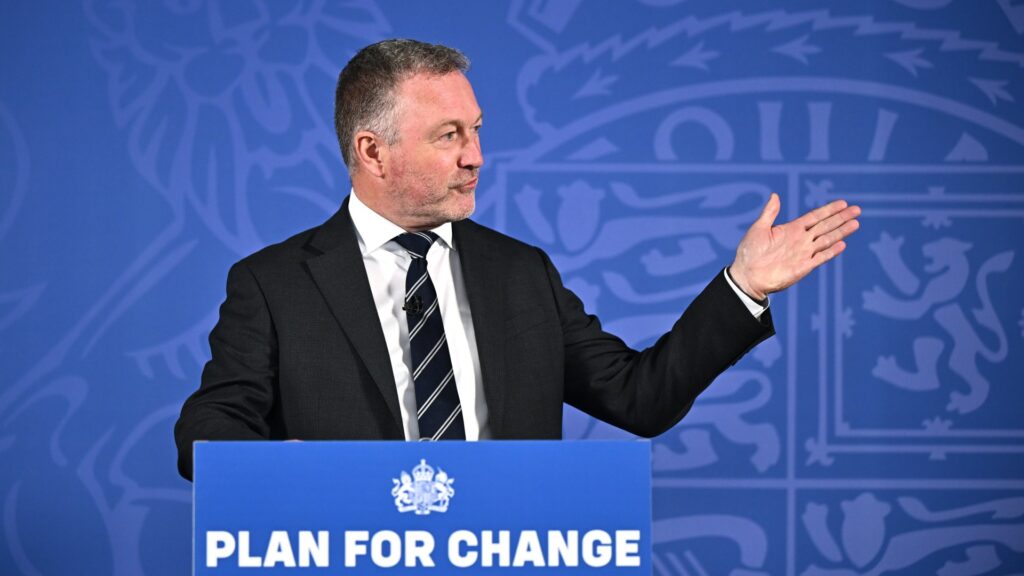
MILLIONS of households are set to gain from sweeping changes to the nation’s water industry.
The government has unveiled bold reforms, including scrapping regulator Ofwat and creating a strong water ombudsman to champion customer rights and ensure fair compensation.
It comes after The Independent Water Commission, led by Sir Jon Cunliffe, released its long-awaited report with 88 recommendations to fix the struggling water industry.
The government asked the team to conduct the biggest review since privatisation, responding to public frustration over pollution, rising bills, and executive bonuses.
Author Sir Jon said the review has “tried to attack the problem from all sides” but warned that bills are going to rise by 30% over the next five years.
“There are some inescapable facts here,” he said.
“The cost of producing water and dealing with our wastewater is going up.”
In response, Environment Secretary Steve Reed has announced the Labour Government will scrap Ofwat as part of the “biggest overhaul of water regulation in a generation”.
The watchdog’s responsibilities will be merged with water-related roles from the Environment Agency, Natural England, and the Drinking Water Inspectorate to create one strong regulator.
Reed’s reforms aim to clean up polluted rivers, lakes, and seas, slashing sewage pollution by half within five years.
The government is also setting up a new ombudsman to help customers resolve complaints and get the compensation they deserve.
This new consumer champion will have legal powers to resolve disputes over leaking pipes, incorrect bills, and supply issues, putting money back into people’s pockets.
What’s changing?
Unlike other industries like financial services, energy, and telecoms, water customers don’t currently have access to a compulsory ombudsman service for complaints.
An ombudsman helps consumers when they have problems or complaints about a company or service.
They investigate issues like wrong bills or poor service, make fair decisions, and ensure customers get the compensation they’re owed.
Right now, water customers can turn to the Consumer Council for Water (CCW) if their water company isn’t resolving a problem.
However, the CCW can only recommend actions, as their complaints process is voluntary and water companies don’t always have to play ball.
A water ombudsman will give customers better support by making sure complaints are dealt with properly and companies take responsibility.
It will make solving problems easier and fairer, while ensuring all customers’ rights are protected.
How will a new ombudsman work?
A new water ombudsman will work by stepping in when customers can’t resolve a problem directly with their water company.
First, you’ll need to make a complaint to the water company and give them a chance to fix the issue.
If they don’t respond, or you can’t agree on a solution, you’ll be able to take your case to the ombudsman.
The ombudsman will investigate the problem independently and, if needed, make legally binding recommendations to ensure the issue is resolved fairly.
This means the water company must follow the ombudsman’s decision.
Do I need to make a complaint to get compensation?
You don’t always need to complain to your water company to get compensation – some payments are automatic.
For years, water suppliers have been required to pay compensation for issues like supply interruptions, sewer flooding, or low water pressure.
However, the compensation rates hadn’t changed since the early 2000s – until now.
This month, the government increased these rates.
For example, if a water company fails to show up for an appointment, compensation has risen from £20 to £50.
For ongoing low water pressure, payouts have jumped from £25 to as much as £250.
The government is also working with water companies to expand the situations that qualify for compensation.
Later this year, customers will be able to claim if they’re told to boil their water because of contamination.
Earlier this month, Steve Reed said: “Too many water companies are letting down their customers – with leaking pipes, poor water supply and low water pressure.
“The Government is holding water companies to account by making them put money back into people’s pockets when they fail their customers.”
The average annual water and wastewater bill increased by £123 in April, taking it from £480 to £603.
Last month, The Sun revealed how millions of households are unable to get help with their bills through a vital scheme due to a key loophole.
What water bill support is available?
IT’S always worth checking if you qualify for a discount or extra support to help pay your water bill.
Over two million households who qualify to be on discounted social water tariffs aren’t claiming the savings provided, according to the Consumer Council for Water (CCW).
Only 1.3million households are currently issued with a social water tariff – up 19% from the previous year.
And the average household qualifying for the discounted water rates can slash their bills by £160 a year.
Every water company has a social tariff scheme which can help reduce your bills if you’re on a low income and the CCW is calling on customers to take advantage before bills rise in April.
Who’s eligible for help and the level of support offered varies depending on your water company.
Most suppliers also have a pot of money to dish out to thousands of customers who are under pressure from rising costs – and you don’t have to pay it back.
These grants can be worth hundreds of pounds offering a vital lifeline when faced with daunting water bills.
The exact amount you can get depends on where you live and your supplier, as well as your individual circumstances.
Many billpayers across the country could also get help paying off water debts through a little-known scheme and even get the balance written off.
Companies match the payments eligible customers make against the debt on their account to help clear it sooner.
If you’re on a water meter but find it hard to save water as you have a large family or water-dependent medical condition, you may be able to cap your bills through the WaterSure scheme.
Bills are capped at the average amount for your supplier, so the amount you could save will vary.
The Consumer Council for Water estimates that bills are reduced by £307 on average through the scheme.







